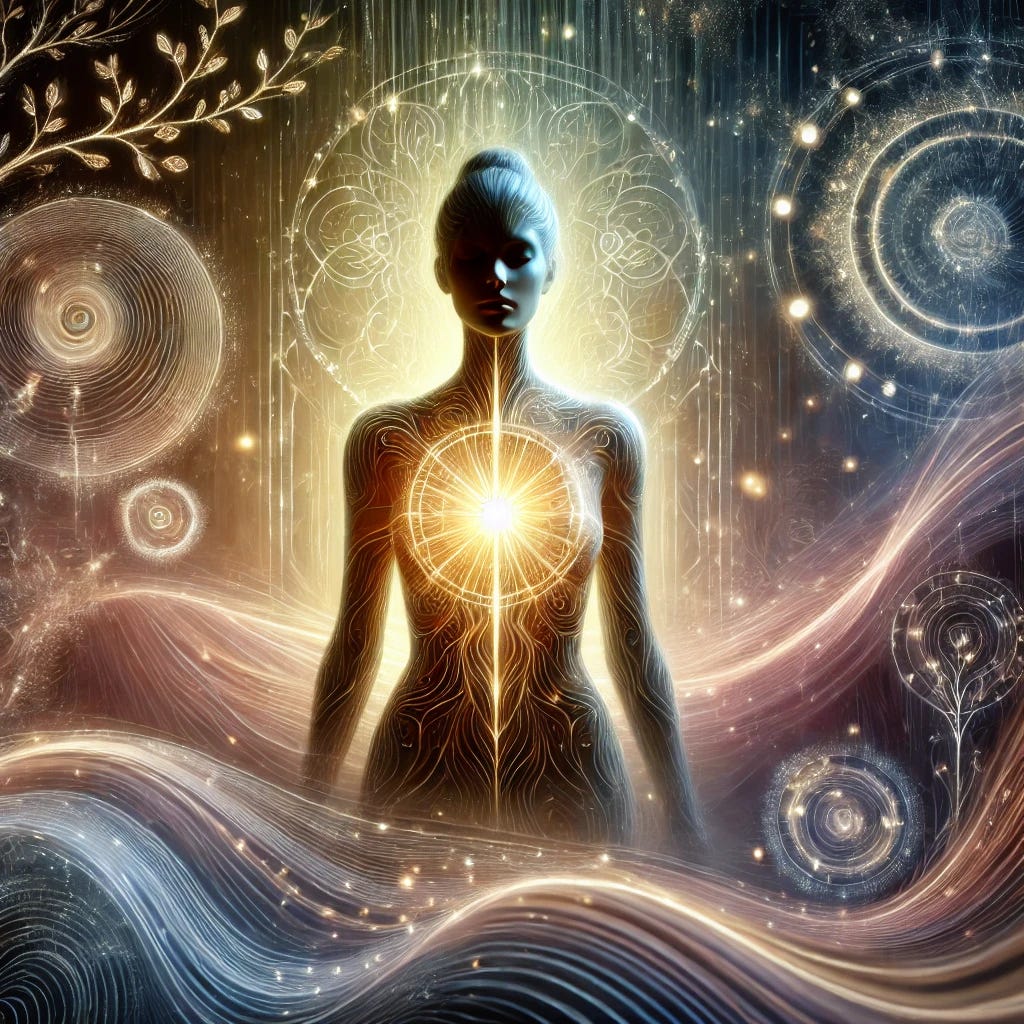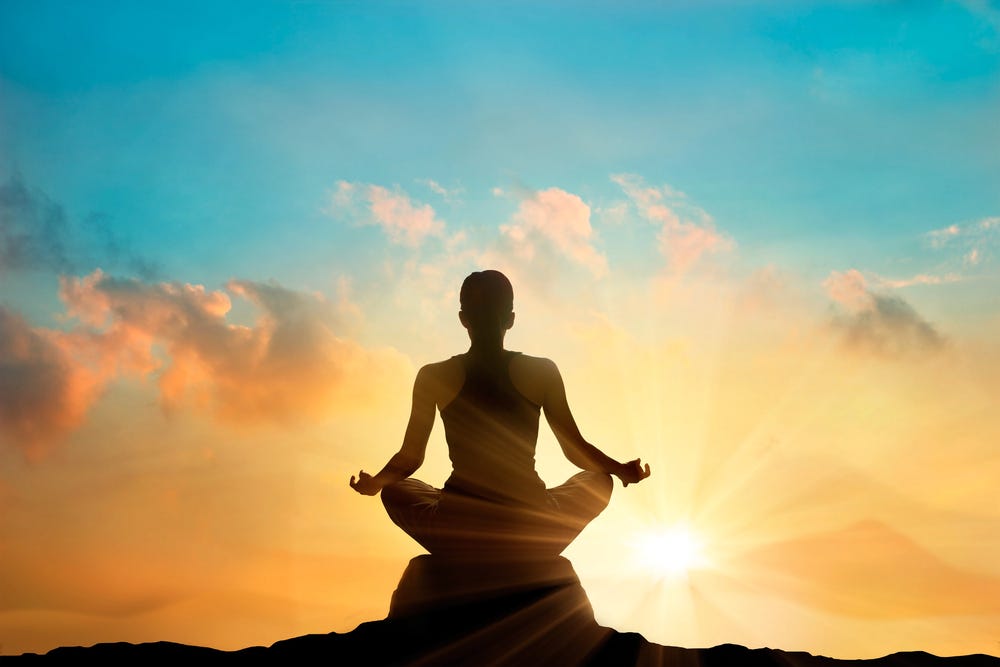The Voice That Knows
Cultivating Self-Trust Through Intuitive Wisdom
There's a moment that lives in my memory from my social work days. I sat in my car, unsure of where I was going, in an unfamiliar neighborhood as dusk settled around me. I felt something I couldn't name but knew I needed to listen to. The appointment was scheduled, my client was expecting me, and canceling would mean an unhappy conversation the next day. But something whispered, "Not tonight." I listened to that whisper, turned around, and drove home. My client was indeed upset when I called to reschedule, but I've never regretted that decision.
But there's another memory, one that carries a different weight entirely. Forty years ago today, June 8, 1985, I was driving home from college, running later than planned. When I called to let my family know, my brother Paul answered the phone. He wanted to chat, the way brothers and sisters do, but I was focused on the road ahead, getting home, and the schedule I was already behind. "I'm in a hurry, Paul," I said, rushing through that conversation. "We'll talk when I get home."
Except we never did. Paul was killed before I made it back.
I wish I could say I had some profound intuitive knowing that day, some cosmic whisper that told me to slow down and really listen to his voice. But the truth is simpler and more painful: somewhere inside me, beneath the urgency and impatience, there was a small voice that wanted to linger in that moment with him. Always impatient, I dismissed it as inefficiency, as something that would make me even later. At 61, I've learned that the voice of intuition, that internal compass we're often taught to ignore, might just be the most reliable guide we have. But I've also learned that sometimes we don't recognize its whispers until we look back through the lens of loss.
The Silenced Wisdom Within
For too many of us, especially women, our intuition has been systematically undermined by a culture that prizes being "nice" over being safe, rational thought over felt sense, and others' comfort over our well-being. We've been conditioned to second-guess that inner knowing and dismiss it as irrational fear or overthinking. But what if that voice, the one that fills your arms with goose bumps, that creates an inexplicable knot in your stomach, that whispers "something's not right here,” is actually our most sophisticated early warning system?
Years ago, Oprah featured a story that has stayed with me: a woman alone at home noticed a man at the end of her driveway. She felt acutely uneasy but dismissed it, choosing instead to be polite when he approached. That decision to override her intuition nearly cost her life. Her story illustrates what security expert Gavin de Becker calls "the gift of fear," our body's ability to detect danger before our conscious mind catches up.
Dr. Judith Orloff, a psychiatrist who has extensively studied intuition, explains that our intuitive knowing comes from a complex interplay of subconscious pattern recognition, subtle environmental cues, and what she calls our "emotional GPS." When we ignore these signals, we disconnect from a profound source of wisdom that has kept humans safe and guided for millennia.
The Art of Discernment: Intuition vs. Self-Doubt
One of the greatest challenges in developing self-trust is learning to distinguish between genuine intuitive guidance and the voice of self-doubt or fear.
Intuition tends to be calm, persistent, and often accompanied by a sense of knowing without knowing why. It rarely screams; instead, it whispers consistently until we listen.
Self-doubt, on the other hand, is often loud, chaotic, and rooted in past experiences or societal conditioning rather than present-moment awareness.
Psychologist Dr. Sonja Lyubomirsky's research on decision-making suggests that intuitive decisions, those made quickly with limited conscious deliberation, are often as accurate as those made through extensive rational analysis, particularly in situations where we have relevant experience or expertise.
The key is learning to feel the difference in your body.
Intuitive guidance often feels expansive, even when it's warning us away from something. It carries a quality of truth that resonates in our core. Self-doubt feels contractive, creating tension and anxiety that cycles without resolution.
Reclaiming Your Right to Trust Yourself
Developing self-trust isn't just about safety, though that's certainly part of it. It's about honoring your authentic self in all its complexity. When we trust our intuition, we give ourselves permission to:
Leave social situations that don't feel right, even if we can't explain why
Say no to opportunities that others think we should want
Choose paths that make sense to us, even when they seem illogical to others
Trust our read on people and situations, even when it conflicts with social expectations
This kind of self-trust is revolutionary for women who have been taught to be accommodating, to prioritize others' needs, and to question our own perceptions. It's a radical act of self-preservation and self-respect.
The Courage to Act on What You Know
Trusting your intuition requires the courage to potentially disappoint others, to seem rude or difficult, to stand alone in your knowing. But what's the alternative? A life lived in constant disconnection from your own wisdom, making decisions based on what others expect rather than what your deeper self knows to be true.
I think of the countless times I've ignored that inner voice, accepting invitations I didn't want, staying in conversations that felt off, pursuing opportunities that looked good on paper but felt wrong in my gut. Without exception, honoring my intuition would have served me better.
Neuroscientist Dr. Antonio Damasio's groundbreaking research revealed that people with damage to the emotional centers of their brains struggle profoundly with decision-making, even when their logical faculties remain intact. This suggests that our emotions and intuitive responses aren't obstacles to good judgment, they're essential components of it.
Building Your Internal Compass
Creating a reliable internal compass isn't about perfecting some mystical ability; it's about returning to a way of knowing that we've always possessed but may have learned to distrust. It requires practice, patience, and the willingness to honor subtle signals that our culture often dismisses.
The path forward involves learning to pause before major decisions, to check in with your body, and to notice what feels expansive versus contractive. It means giving yourself permission to trust first impressions while remaining open to new information. Most importantly, it means accepting that you have the right to trust yourself, even when, especially when, others question your choices.
A Deeper Dive: 7-Day Self-Trust Challenge: Your Weekly Intuition Practice
✨ Bonus Resource Just for You! ✨
This week’s Deeper Dive: 7-Day Self-Trust Challenge: Your Weekly Intuition Practice offers a step-by-step reflection journey designed to help you recognize, trust, and act on your intuitive wisdom. Each day builds on the last, creating a foundation for lifelong self-trust.
I’m providing this as a separate, downloadable and fillable resource so you can easily save it, print it, or return to it anytime — no scrolling back through the article required. This is my small thank-you to you, my fellow travelers, for being part of this journey.
Daily Mantra
Carry this mantra with you throughout the week, especially when facing challenges:
"I trust the wisdom that lives within me, honoring both my rational mind and my intuitive knowing as I navigate my unique path forward."
Repeat this mantra daily as a reminder to check in with your authentic self before making decisions or responding to external expectations.
The Path Forward
As you continue to navigate social expectations and personal choices, remember that your path is uniquely yours. Embrace the journey, celebrate your accomplishments, and surround yourself with people who support and uplift you.
Join me here each Sunday at 10:10 a.m. ET for inspiration, encouragement, and community. Why 1010? In numerology, 1010 symbolizes new beginnings, spiritual awakening, and the realization of our potential.
More For You
How To Identify Your Intuition's Voice Clearly
Carl Jung on Intuition: How to Tap Into Your Inner Wisdom
How To Listen To Your Intuition | Intuition Tips | Sonia Choquette
Brené Brown Leaves the Audience SPEECHLESS | One of the Best Motivational Speeches Ever






Dr Damasio’s research sounds interesting. I wonder if “emotional damage” in the decision making part of the brain can be caused by emotional trauma, like verbal abuse or the loss of a child, or if it only occurs as a result of some physical injury. My thinking is that psychological damage to that area, thereby affecting decision making process, might partially explain why battered spouses are often unable to leave.
I agree that emotional damage is battering as well. Absolutely. Psychological damage can be even more insidious as there are no bruises or scars, right? But it's so damaging. I had an acquaintance who was told she would never amount to anything (by her father) all the time. She struggled to make decisions and never saw her value.